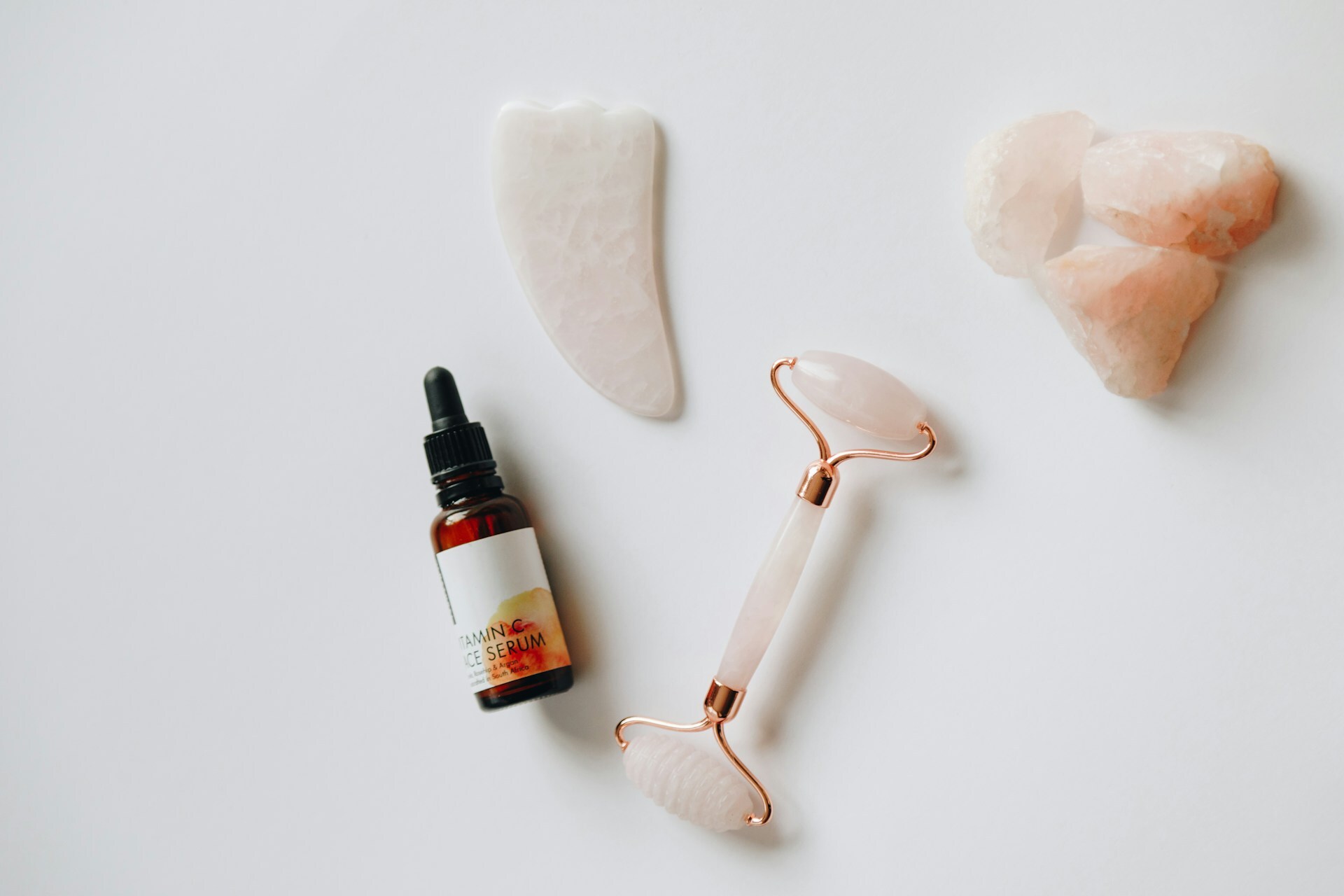Health
Benefits of CBD

In recent years, there has been a growing interest in the potential benefits of CBD. Cannabidiol, or CBD, is a naturally occurring compound found in the cannabis plant. Unlike its cousin, THC, CBD does not have psychoactive properties and offers various health benefits without the associated “high.” Let’s explore the benefits of CBD and how it can improve our well-being.
Introduction
CBD has gained significant popularity due to its potential therapeutic effects. Research and anecdotal evidence suggest that CBD may be beneficial for a wide range of health conditions. From pain management to anxiety relief, sleep enhancement to skincare, CBD offers a versatile approach to improving our physical and mental well-being.
What is CBD?
CBD is one of over a hundred cannabinoids present in the cannabis plant. It interacts with our body’s endocannabinoid system (ECS), a complex network of receptors that helps regulate various physiological functions, including mood, pain perception, immune response, and sleep. Unlike THC, CBD does not bind directly to these receptors but influences them indirectly, resulting in therapeutic effects.
Health Benefits
Pain Management
Chronic pain affects millions of people worldwide, impacting their quality of life. CBD has shown promise in relieving pain and reducing inflammation. By interacting with ECS receptors, CBD can help alleviate discomfort caused by conditions such as arthritis, fibromyalgia, and multiple sclerosis. Its anti-inflammatory properties make it a natural alternative to traditional pain medications.
Anxiety and Stress Relief
In today’s fast-paced world, anxiety and stress have become prevalent issues. CBD has been found to have calming effects on the mind and body, promoting relaxation and reducing anxiety. It interacts with serotonin receptors, which play a crucial role in regulating mood and emotions. CBD can help manage anxiety disorders, such as generalized anxiety disorder (GAD), social anxiety disorder (SAD), and post-traumatic stress disorder (PTSD).
Sleep Enhancement
Quality sleep is essential for overall well-being, but many struggle with sleep-related issues. CBD can address insomnia and promote better sleep quality. It interacts with receptors involved in sleep regulation, influencing sleep-wake cycles and promoting relaxation. By reducing anxiety and providing a sense of calm, CBD can help individuals achieve restful sleep.
Skin Health
CBD’s anti-inflammatory and antioxidant properties make it beneficial for skin health. It can help manage skin conditions like acne, eczema, and psoriasis by reducing inflammation and balancing oil production. CBD-infused skincare products, such as creams and serums, can nourish the skin, improve its appearance, and soothe irritation.
Neuroprotective Effects
Research suggests that CBD has neuroprotective properties, meaning it may protect and support brain health. It has shown
Neuroprotective Effects (Continued)
CBD has shown potential in protecting the brain against neurodegenerative diseases like Alzheimer’s and Parkinson’s. It interacts with the ECS and other receptors in the brain, reducing inflammation, oxidative stress, and neurotoxicity. While more research is needed, the neuroprotective properties of CBD offer promising possibilities for preventing or managing these debilitating conditions.
Potential Cancer Treatment
CBD’s role in cancer treatment is an area of ongoing research. Studies suggest that CBD may have anti-tumor effects and can enhance the effectiveness of traditional cancer therapies. It can help alleviate chemotherapy-induced side effects like nausea, vomiting, and loss of appetite. However, it’s important to note that CBD is not a cure for cancer, and further research is needed to fully understand its potential in this area.
Side Effects
One of the common concerns regarding CBD is its potential side effects. While CBD is generally well-tolerated, some individuals may experience mild side effects such as fatigue, dry mouth, or changes in appetite. It’s crucial to use CBD products responsibly and consult with a healthcare professional before incorporating them into your routine, especially if you have any underlying medical conditions or are taking other medications.
Legal Considerations
The legal status of CBD varies from country to country and even within different regions. In some places, CBD derived from hemp with low THC content is legal, while others may have stricter regulations. It’s essential to be aware of the laws and regulations regarding CBD in your specific location to ensure compliance and avoid any legal issues.
How to Use CBD
CBD is available in various forms, including oils, tinctures, capsules, edibles, topicals, and vaping products. The most suitable form depends on individual preferences and desired effects. It’s advisable to start with a low dosage and gradually increase it while monitoring your body’s response. Consulting with a healthcare professional or CBD specialist can help determine the best dosage and administration method for your needs.
Conclusion
CBD is available in various forms, including oils, tinctures, capsules, edibles, topicals, and vaping products. CBD offers a wide range of potential benefits for our overall well-being. From pain management and anxiety relief to sleep enhancement and skincare, CBD has emerged as a versatile natural option. However, it’s important to approach CBD use responsibly, consult with professionals, and be aware of the legal considerations in your area. With ongoing research, the full potential of CBD and its applications in various health conditions continue to be explored.
Health
The Subtle Ways Contraceptives Affect Women’s Emotions and Mental Health

Ladies, let’s have a heart-to-heart talk about the link between birth control and our emotions. We all know those little pills, patches, or T-shaped devices are lifesavers in family planning. But they can also come with some unexpected baggage.
While hormonal birth control is undeniably compelling, some experts share its potential to stir up a storm in our emotional seas. From the occasional mood swings to severe mental health concerns, the impact of hormones is a conversation we need to have.
Don’t worry; we’re not here to scare you off birth control altogether. We’re here to help you understand the potential risks of contraception’s emotional impact. And guide you toward making informed choices for your overall well-being.
Decoding Hormonal Birth Control
Hormonal birth control (HBC) is a widely used method of family planning that offers women control over their reproductive health. Combined hormonal contraceptives introduce synthetic hormones—either a combination of estrogen and progestin or progestin alone—into a woman’s body. These hormones mimic the natural hormones estrogen and progesterone, effectively suppressing ovulation and preventing pregnancy.
Estrogen and progesterone are not solely responsible for reproductive functions. They also play a significant role in mood regulation and emotional well-being. Estrogen, in particular, influences the production of serotonin, a feel-good chemical that contributes to feelings of happiness and stability.
Studies say serotonin increases in the follicular phase when estrogen levels are high. Conversely, serotonin decreases during the luteal phase when estrogen levels are low, and progesterone is high.
On the other hand, progesterone can sometimes induce a calming effect and relieve anxiety or lead to feelings of melancholy. The introduction of synthetic hormones through HBC can, therefore, interact with this delicate hormonal balance, potentially influencing a woman’s emotional state.
Finding Your Perfect Contraceptive Fit
So, we’ve talked about the emotional ups and downs that can sometimes accompany hormonal birth control. But there are different types of contraceptive options, each with its pros and cons. Let’s explore these contraceptive options and find your perfect match.
Hormonal Contraceptives
Hormonal contraceptives (HBCs) are a popular and effective contraceptive method for many women. They come in various forms, each with its benefits and drawbacks.
The Pill: The most well-known HBC pills are daily oral contraceptives containing either a combination of estrogen and progestin.
Progestin-Only Pills (POPs/Mini Pills): POPs contain only progestin, making them a good option for women who can’t take estrogen. They are similarly effective to combined pills when taken on time. However, their strict timing requirements can be challenging for some women.
Patches: These thin, sticky patches release hormones through the skin. They’re convenient, require weekly replacement, and offer similar benefits to combined pills.
Hormonal IUDs: These T-shaped devices are placed in the uterus by a healthcare provider. They release a low dose of progestin directly into the uterus. They are long-lasting (3-5 years), highly effective, and can cause lighter or even absent periods.
Non-Hormonal Contraceptives
If hormones aren’t your jam, don’t worry; you can choose a non-hormonal birth control option anytime. These methods don’t mess with your body’s natural chemistry. This makes them an excellent choice for women who are sensitive to hormones or simply prefer to keep things au naturel.
One popular option is the copper IUD, aka Paragard. This little T-shaped device sits comfortably in your uterus and releases copper ions, creating an environment that’s toxic to sperm. It boasts a 99% success rate in preventing pregnancy and can last ten years. Plus, it’s hormone-free so that you can dodge those mood swings and other hormonal side effects. However, being aware of recent concerns that have led to thousands of lawsuits is crucial.
The primary issue revolves around the Paragard device breaking or fracturing during removal. It can lead to severe complications, including uterine perforation, infections, and emotional distress.
Thousands of women have filed lawsuits against Teva Pharmaceuticals, the maker of Paragard. The Paragard lawsuit alleges the company failed to warn about the risk of breakage and the potential for serious complications.
TorHoerman Law mentioned these lawsuits have been consolidated into a multidistrict litigation (MDL) to streamline the legal process. As of July 2024, over 2,736 lawsuits are pending, with bellwether trials scheduled for 2025.
If you have a Paragard IUD or are considering getting one, it’s essential to be aware of these potential risks. Talk to your doctor about the benefits and drawbacks of Paragard, and discuss any concerns you may have. If you’ve experienced complications with Paragard, especially during removal, know that you’re not alone.
The Roller Coaster of Mood Swings
Hold on tight because hormonal birth control can sometimes turn your emotions into a wild ride. It’s not unusual to find yourself laughing one minute and crying the next. Or feel a short fuse has replaced your patience.
Research confirms that mood swings are a genuine concern for many women using hormonal birth control. Studies show women using combined oral contraceptives (COC) experience a 12.67% increase in adverse effects. It shows a 7.42% increase in anxiety and a 23.61% increase in mental health.
Another study finds emotional side effects are a leading cause of women (48.3%) ditching their current birth control. Women with a psychiatric illness history are 61.2% more likely to report mood swings compared to those without a history.
One possible culprit is the synthetic progesterone found in many hormonal contraceptives. This artificial hormone may interfere with GABA, a neurotransmitter that helps us feel calm and collected.
Contraceptive progestins change allopregnanolone levels, a positive allosteric modulator of the GABA-A receptor. When GABA gets thrown off balance, it can trigger feelings of anxiety, irritability, and those dreaded mood swings.
A large Danish study found an even more concerning connection. It revealed an increased risk of depression diagnoses and antidepressant use among women on hormonal birth control. This is especially true among teenagers and those using non-oral methods.
Now, before you panic and toss your pill pack in the trash, remember that everyone reacts differently to hormones. Some women experience minimal changes, while others feel the impact more intensely. And while research paints a conflicting picture, it’s clear that hormonal birth control can send your emotions on a detour.
Beyond Mood Swings: Depression and Anxiety
While mood swings might be the most talked-about emotional side effect of hormonal birth control, the potential impact doesn’t stop there. For some women, these hormonal changes can trigger or exacerbate more serious mental health conditions like depression and anxiety.
Let’s talk numbers: A significant study from Uppsala University found a 73% increased risk of developing depression in women using combined oral contraceptives. This is primarily within the first two years. The risk skyrocketed to 130% for teenage girls who started the pill, perhaps due to the added hormonal upheaval of puberty.
Moreover, there is a higher risk of depression diagnoses and antidepressants among women on hormonal birth control. The majority impact is on young women. This data can feel heavy, but it’s important to remember that not all research points in the same direction. Some studies have found little link between hormonal birth control and depression. While others even suggest it might have a protective effect on some women.
The truth is, it’s complicated. We are unique with our genetic makeup, hormonal sensitivities, and life experiences. While hormonal birth control might trigger depression in some, it might alleviate symptoms for others. This is especially true in women struggling with premenstrual dysphoric disorder (PMDD).
And let’s not forget anxiety. It’s another mental issue that can sometimes show up with hormonal birth control. Feeling on edge, constantly worried, or experiencing racing thoughts can be a real drag, wildly unexpected.
FAQs
Can Birth Control Make You Lose Feelings for Someone?
While hormonal birth control may affect emotions and relationships, there’s no definitive evidence that it causes lost feelings for a partner. Some individuals report changes in attraction or satisfaction when starting or stopping hormonal birth control, but these experiences vary
Can Birth Control Make You Overthink?
Yes, some individuals may experience increased anxiety or overthinking while using hormonal birth control. This is due to hormone fluctuations, particularly estrogen and progesterone, which can affect brain chemistry and mood.
What Is the Best Birth Control for Mood Stability?
Birth control pills containing drospirenone, a progestin with low androgenic activity, are often recommended for mood stability. Yaz is currently the only birth control pill approved to treat premenstrual dysphoric disorder (PMDD), a severe form of PMS. Other options include monophasic pills, hormonal IUDs, and non-hormonal IUDs.
Your Body, Your Choice
Your body is yours. And that means you get to call the shots when it comes to your birth control and your emotional well-being.
First, talk to your doctor. Be upfront about any history of mood disorders, anxiety, or depression, even if it feels a little awkward. They need to know the complete picture to help you choose the right contraceptive for you. Many women said their doctors never even mentioned the possibility of mood changes with birth control. That’s a huge communication gap we need to bridge.
Once you’re on a new birth control method, become your mood detective. Keep a journal to track your emotions, noting any ups and downs, irritability, sadness, or anxiety. Don’t hesitate to speak up if your moods are all over the map.
Your doctor is there to help you find solutions. That might mean trying a different type of birth control, adjusting your dosage, or exploring non-hormonal options.
Health
Particle-Free Zone: The Science Behind HEPA Filter Efficiency

In an age where air quality is increasingly under scrutiny, the demand for effective air filtration systems has never been greater. Among the most reliable and efficient options available, HEPA filters stand out as stalwarts in the realm of air purification.
Understanding the science behind Hepa filter efficiency is crucial for appreciating their efficacy in creating particle-free zones in various environments. In addition to their widespread use in industrial and medical settings, these filters have also become a staple in residential air purifiers, ensuring clean and healthy indoor air for households worldwide. This article talks about the intricate mechanisms and standards that govern filter efficiency, shedding light on their indispensable role in safeguarding air quality.
Understanding HEPA Filters
High-Efficiency Particulate Air (HEPA) filters are mechanical air filters designed to remove a wide range of airborne particles, including dust, pollen, mold spores, pet dander, bacteria, and viruses. These filters consist of a dense mat of randomly arranged fibers, typically made from fiberglass, arranged to form a maze-like structure.
The intricate design of these filters creates numerous interception points, where particles collide with and adhere to the fibers, effectively removing them from the air stream. They operate on the principle of physical filtration, capturing particles as air passes through the fibrous matrix, rather than relying on chemical reactions or treatments.
Mechanism of Particle Capture
The efficiency of HEPA filters in capturing particles is primarily attributed to two mechanisms: interception and diffusion. Interception occurs when particles in the air stream come into contact with the fibers of the filter and adhere to them due to van der Waals forces.
Diffusion, on the other hand, is the process by which smaller particles are diverted from their original path by air currents and collide with filter fibers, where they are subsequently trapped. Understanding these mechanisms is essential for optimizing filter design and performance in various applications.
Filter Efficiency Standards
The efficiency of HEPA filters is quantified based on their ability to remove particles of specific sizes from the air. These filters must meet stringent standards to be classified as true filters. Many government authorities and energy departments require them to remove at least 99.97% of particles that are 0.3 micrometers in diameter.
This standardized testing method ensures consistency and reliability in filter performance. Globally recognized standards such as EN 1822 also provide criteria for evaluating filter efficiency, ensuring compatibility across different regions and industries.
Factors Affecting Filter Performance
Several factors can influence the performance of filters, including airflow velocity, filter thickness, and particle loading. Higher airflow velocities can reduce filter efficiency by allowing particles to bypass the filter media. Similarly, thicker filters with a greater surface area tend to exhibit higher efficiency due to increased particle capture potential.
Particle loading, or the accumulation of particles on the filter surface, can also decrease filter efficiency over time if not addressed through regular maintenance. Understanding these factors is essential for optimizing filter performance and extending their operational lifespan.
Maintenance and Replacement Considerations
Proper maintenance is essential for ensuring the long-term effectiveness of filters. Regular inspection and cleaning of filters can help prevent particle buildup and maintain optimal airflow. Filters should be replaced according to manufacturer recommendations to prevent deterioration in performance.
Failure to adhere to maintenance schedules can lead to decreased filtration efficiency and compromised air quality. By implementing a comprehensive maintenance plan, users can maximize the longevity and efficiency of these filters, ensuring continued protection against airborne contaminants.
Applications of Filters
These filters find widespread use in various applications where air quality is of paramount importance. From residential air purifiers to industrial cleanrooms, they play a critical role in creating clean and healthy environments.
They are also utilized in medical facilities, laboratories, and aerospace industries to maintain sterile conditions and prevent the spread of contaminants. With their versatility and effectiveness, they have become indispensable tools for safeguarding air quality across diverse settings.
Future Trends in Filter Technology
As technology continues to advance, ongoing research aims to further enhance the performance and efficiency of these filters. Innovations such as nanofiber coatings and electrostatic enhancements hold promise for improving particle capture efficiency and extending filter lifespan.
The integration of smart sensors and IoT connectivity enables real-time monitoring and optimization of filter performance, ensuring continuous protection against airborne pollutants. By embracing these advancements, the future of filter technology holds the potential for even greater efficacy and versatility in addressing air quality challenges.
A Hepa filter represents a cornerstone of modern air filtration technology, offering unparalleled efficiency in removing airborne particles and creating particle-free zones. By understanding the underlying science and factors influencing their performance, individuals and industries alike can harness the full potential of these filters to safeguard air quality and promote health and well-being.
Health
Crystal Massage Therapy: A Holistic Approach to Wellness

Crystal massage therapy, often regarded as a niche practice, is gaining momentum in the realm of holistic healing. Harnessing the natural energy of crystals, this therapeutic modality offers a unique and profound way to promote physical, emotional, and spiritual wellbeing. In this comprehensive guide, we delve into the origins, benefits, techniques, and applications of crystal massage therapy, shedding light on its potential to transform lives and restore balance.
Origins of Crystal Massage Therapy
The roots of crystal massage therapy can be traced back thousands of years to ancient civilizations such as the Egyptians, Greeks, and Chinese. These cultures revered crystals for their healing properties and incorporated them into various rituals and practices. The use of crystals in massage therapy gained prominence in the 20th century with the emergence of alternative healing modalities and the growing interest in energy medicine. Today, crystal massage therapy continues to evolve, drawing inspiration from both ancient wisdom and modern science.
Understanding Crystal Healing
At the heart of crystal massage therapy lies the belief that crystals possess unique vibrational frequencies that interact with the body’s energy field, or aura. According to proponents of this practice, different types of crystals resonate with specific energy centers, or chakras, within the body, influencing the flow of energy and promoting balance and harmony. By incorporating crystals into massage sessions, therapists aim to amplify the healing effects of touch, facilitating deep relaxation, stress relief, and emotional release.
Benefits of Crystal Massage Therapy
The benefits of crystal massage therapy are manifold, encompassing physical, mental, and emotional aspects of wellbeing. Physically, the gentle pressure and soothing warmth of crystals can help relieve muscle tension, alleviate pain, and improve circulation. Mentally, the serene ambiance and meditative quality of the practice promote relaxation, clarity of mind, and mental focus. Emotionally, crystal massage therapy can facilitate the release of stored emotions, trauma, and negative energy, fostering emotional healing and inner peace.
Techniques Used in Crystal Massage Therapy
Crystal massage therapy incorporates a variety of techniques designed to enhance the therapeutic effects of the treatment. These may include:
- Placement of Crystals: The therapist strategically places crystals on specific points of the body corresponding to energy centers or areas of tension.
- Crystal Wand Massage: The therapist uses a smooth, polished crystal wand to apply gentle pressure and massage techniques to the skin, promoting relaxation and energy flow.
- Crystal Grids: Crystals may be arranged in geometric patterns around the body to create a harmonious energy field and facilitate healing on multiple levels.
- Chakra Balancing: The therapist focuses on aligning and balancing the body’s chakras using specific crystals associated with each energy center.
Applications of Crystal Massage Therapy
Crystal massage therapy can be applied to a wide range of physical and emotional conditions, making it a versatile tool for holistic healing. It may be used to alleviate chronic pain, promote relaxation and stress relief, enhance emotional wellbeing, support recovery from illness or injury, and facilitate personal growth and spiritual development. Additionally, crystal massage therapy can complement other holistic practices such as Reiki, aromatherapy, and meditation, synergistically enhancing their effects.
Incorporating Crystal Massage Therapy into Your Wellness Routine
If you’re curious about exploring the benefits of crystal massage therapy, there are several steps you can take to incorporate it into your wellness routine. Start by researching reputable practitioners or wellness centers in your area that offer crystal massage services. Before scheduling a session, take the time to discuss your goals, concerns, and expectations with the therapist to ensure a personalized experience tailored to your needs. During the session, relax and allow yourself to fully experience the healing energy of the crystals, trusting in the wisdom of your body to guide the process.
Conclusion
In conclusion, crystal massage therapy represents a holistic approach to wellness that honors the interconnectedness of body, mind, and spirit. By harnessing the natural energy of crystals, this ancient practice offers a gentle yet powerful way to promote healing, relaxation, and personal transformation. Whether you’re seeking relief from physical pain, emotional stress, or simply a deeper connection to yourself, crystal massage therapy invites you to embark on a journey of self-discovery and renewal.

 Entertainment2 days ago
Entertainment2 days agoSandra Orlow: A Cultural Icon’s Life and Influence

 Finance4 weeks ago
Finance4 weeks ago5 Things to Know About Startup Loans

 Health2 weeks ago
Health2 weeks agoThe Subtle Ways Contraceptives Affect Women’s Emotions and Mental Health

 Tech2 days ago
Tech2 days agoInnovative Applications of Current Sense Transformers in Today’s Industries

 Tech7 hours ago
Tech7 hours agoEnsure Project Success with Expert Dedicated Teams










